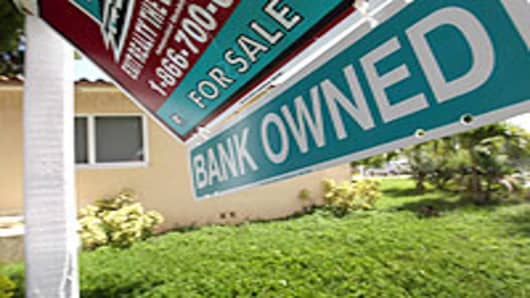As federal regulators clamp down on foreclosure procedures at the big banks, and the government sets new lender requirements for risk retention in residential mortgages, the cry from the industry is that this will only hamper the housing recovery and price more borrowers out of home ownership.
“High down payment and equity requirements will not have a meaningful impact on default rates. But they will require millions of consumers, who are at low risk of default, to either put off buying a home or pay unnecessarily high rates," according to a statement from a coalition including the Mortgage Bankers Association and the National Association of Home Builders. "The government is penalizing responsible consumers, making homeownership more expensive or simply out of reach for millions. We urge regulators to develop a final rule that encourages good lending and borrowing without punishing credit-worthy consumers.”
On the one flank you have the industry fighting these new regulations and on another they are fighting a potential settlement with the state attorneys general that could involve fines that would go toward lowering mortgage principal for troubled borrowers. They in fact funded a study that found such a settlement would prolong the foreclosure crisis and drive up mortgage interest rates. That enraged consumer advocates. Iowa's attorney general Tom Miller, heading up the 50 state group looking to impose penalties shot back:
"This is a flawed study based on inaccurate assumptions, and it reaches grossly inaccurate conclusions. This study was bought and paid for by the industry, and that fact is reflected throughout."
So the industry fights that regulations and penalties are too harsh and will hurt the consumer, and consumer advocates argue they're not harsh enough and will hurt the consumer.




